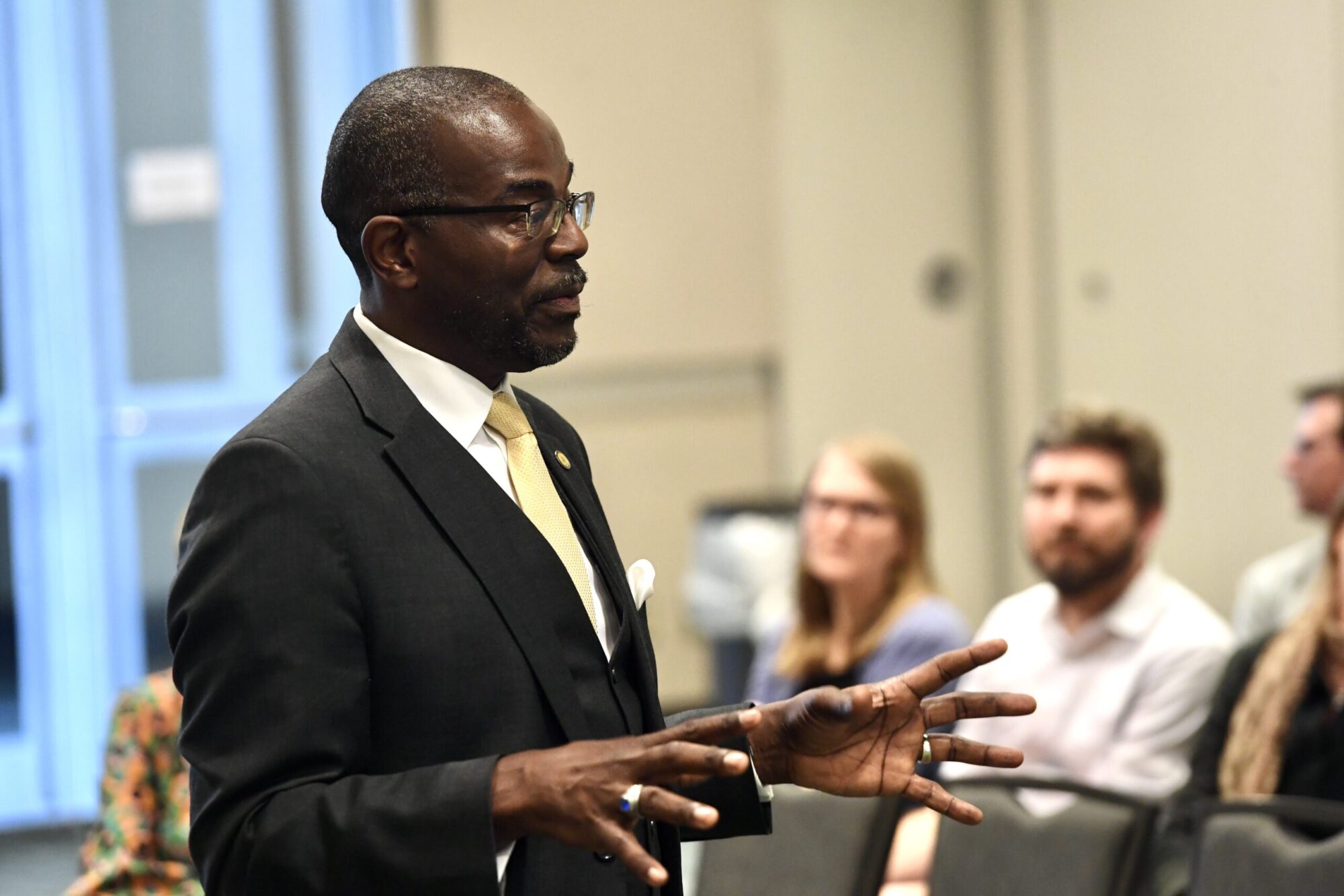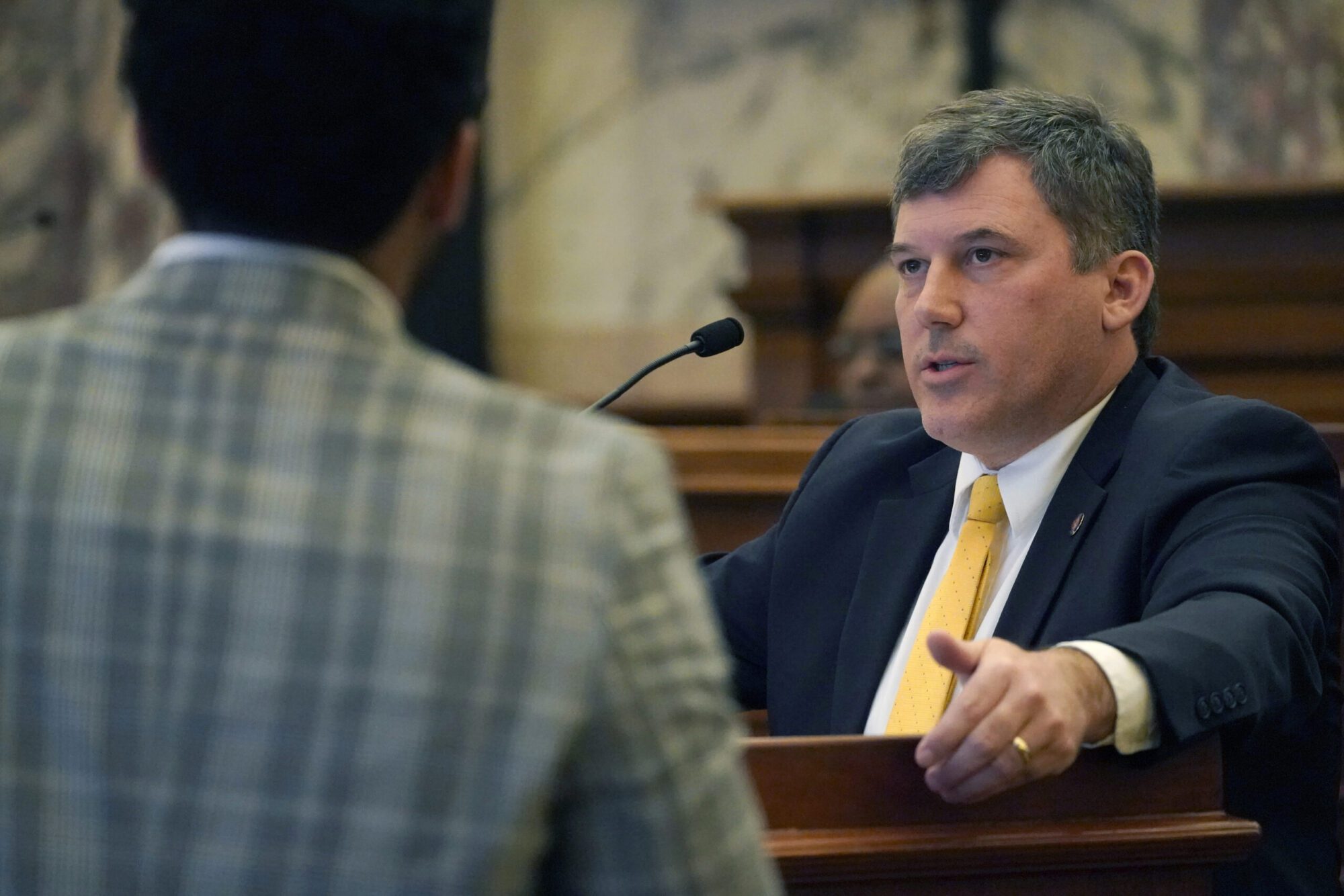
The Kentucky swimmer is an outspoken proponent for protecting biological females in athletic competition. She spoke at a luncheon hosted by the Mississippi Center for Public Policy.
On Thursday, the Mississippi Center for Public Policy (MCPP) held a luncheon, headlined by Riley Gaines, the Southeastern Conference swimmer from the University of Kentucky, who has become the face of a national movement calling on state legislatures and Congress to protect women’s athletics from biological males.
Gaines is a record setting swimmer that, at a NCAA Championship event, tied a biological male who had recently begun to make his transition after competing the previous three years as a male athlete. That male, William “Lia” Thomas, from the University of Pennsylvania, was allowed by the NCAA to compete in the women’s swim tournament. Despite the tie, Thomas was given a higher place and trophy than Gaines.
Gaines, joined by Mandy Gunasekara, a candidate for Northern District Public Service Commissioner, discussed why Mississippi should adopt a Women’s Bill of Rights.
Gaines, a spokeswoman with the Independent Women’s Forum, said the Women’s Bill of Rights defines a woman as an adult human female who has the capabilities of producing ova or eggs.
“It seems pretty wild that we do need legislation that does [defines a woman] so. But it’s very important. It would protect things far beyond just women’s sports. It would protect things like prisons and shelters and changing spaces in areas like a YMCA or something of that nature, and really just anywhere where the term woman is used,” Gaines told Magnolia Tribune, adding that she believes all states should adopt such a bill.
Mississippi Governor Tate Reeves did sign the Fairness Act into law in 2021. It prohibits biological men from participating in women and girls’ sports in the state
However, MCPP President and CEO Douglas Carswell believes Mississippi needs a Women’s Bill of Rights in addition to the Fairness Act. He discussed the purpose of the event and why he supports the Women’s Bill of Rights with Magnolia Tribune.
“We now see this real, concerted effort by woke ideologues to put politics into sport, and the risk of that is that we see women’s sport subject to unfair competition. So, we think we need to pass a bill that would clearly define what is a woman and what is a man and that would allow the equal treatment of women,” Carswell said. ” We think that is a good thing we should do here in Mississippi.”
The Women’s Bill of Rights argues that there are legitimate reasons to distinguish between the sexes with respect to athletics, prisons or other detention facilities, domestic violence shelters, rape crisis centers, locker rooms, restrooms, and other areas “where biology, safety, and/or privacy are implicated.”
“Policies and laws that distinguish between the sexes are subject to intermediate constitutional scrutiny, which forbids unfair discrimination against similarly-situated males and females but allows the law to distinguish between the sexes where such distinctions are substantially related to important governmental objectives,” the statement said.
It further declares that any public school or school district and any federal/state/local agency, department, or office that collects vital statistics for the purpose of complying with anti-discrimination laws or for the purpose of gathering accurate public health, crime, economic or other data shall identify each individual who is part of the collected data set as either male or female at birth.
Attorney General Lynn Fitch and U.S. Senator Cindy Hyde-Smith are among those in Mississippi who have called for the state to adopt a Women’s Bill of Rights.
In August 2022, Attorney General Fitch became the first state Attorney General to sign the Women’s Bill of Rights, and prior to that, in May 2022, Senator Hyde-Smith introduced a resolution, S.Res.644, to establish a Women’s Bill of Rights.
“The radical left chips away at women’s rights each time they disregard biological differences between males and females,” Senator Hyde-Smith said at the time. “This resolution reaffirms those unique differences and seeks to protect women’s rights whether it is in athletics, prisons, or domestic violence shelters.”
Many organizations supported the Senate resolution, including Independent Women’s Voice, Independent Women’s Law Center, Concerned Women for America LAC, Heritage Action for America, American Principles Project, Women’s Liberation Front, Family Policy Alliance, Eagle Forum, Conservative Political Action Committee (CPAC), and Women’s Declaration International USA.











